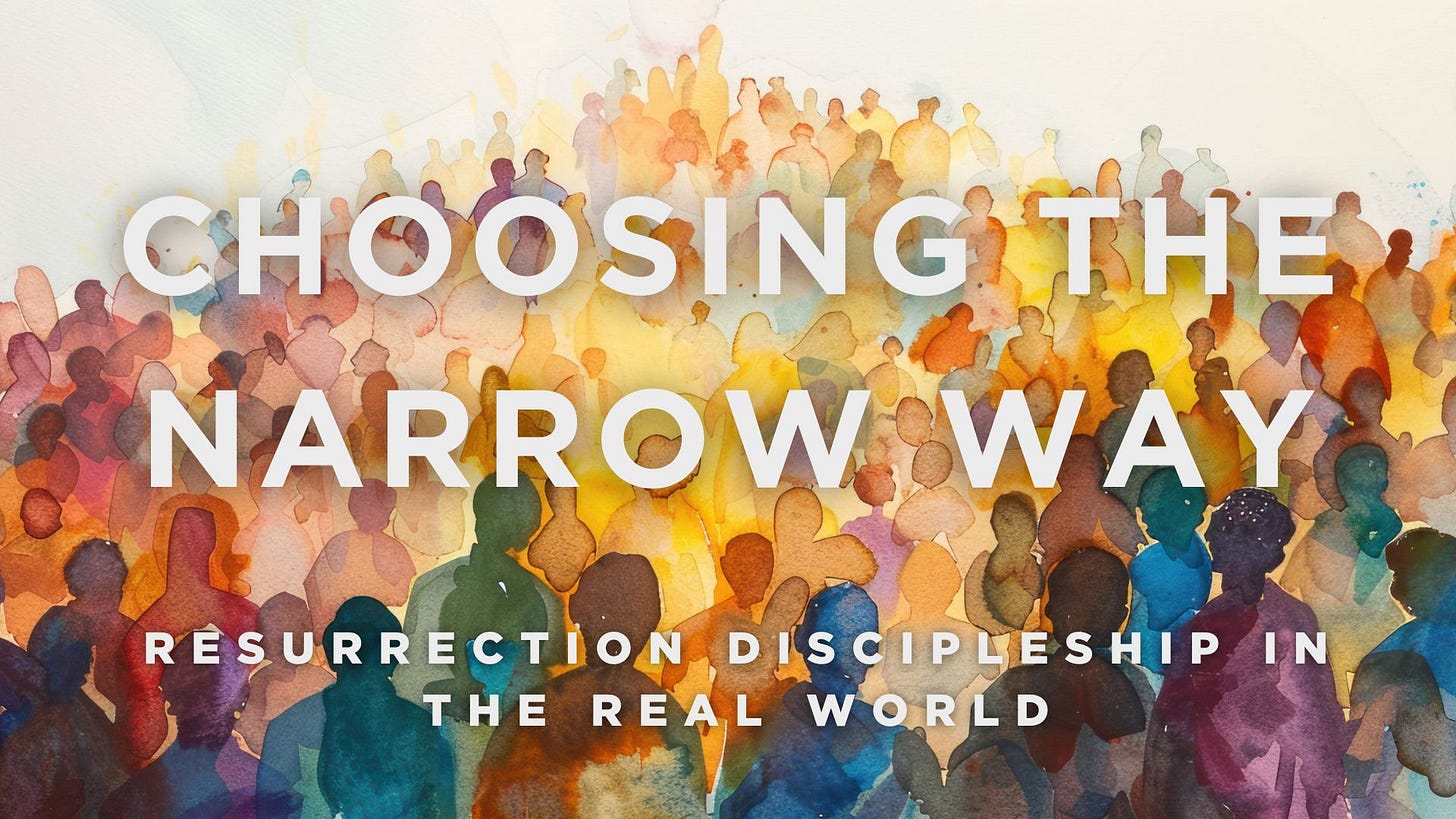(Sung) Amazing grace! how sweet the sound
That saved a wretch like me!
I once was lost, but now am found,
Was blind, but now I see.
Lord, we come to you this morning in that same spirit.
We are not the ones with perfect vision.
We are not the judges, the fixers, or the righteous.
We are the ones you’ve saved;
the ones still learning to see.
Give us grace today, not only to see ourselves clearly,
but to see one another with compassion,
through the eyes of Christ.
Amen.
Last Sunday, our theme, courtesy of Matthew 6, was fear and worry. I said, “If worry were a spiritual discipline, most of us would be canonized saints.” Well, if that is true, then judging others? Let’s just say there is a special corner in heaven reserved for folks like us, complete with double halos and an honorary gavel. Because if we are being honest, we’re good at it. Judging others.
Jesus in Matthew 7 does not waste time easing us into the conversation. He opens with a sledgehammer, “Do not judge, so that you may not be judged.”[i] If we stop there, we might feel a little relief, perhaps even a hint of smugness. “Exactly, Jesus! That’s why I don’t like church people. They are too judgmental.”
That is a common and, at times, painful critique of the church. Many people will not cross the threshold of a sanctuary, not because they do not believe in God, but because they assume the people on the inside are lining up judgments against them. They fear their past will be whispered about, questions dismissed, clothes and relationships or addictions quietly (or not so quietly) condemned.
And the church has too often made these fears justified.
But Jesus keeps going, and suddenly it’s no longer about them anymore. It is about us.
Jesus tells us to consider the plank in our eye, the 2x4. Not just to consider it, but to be honest about it. To take it seriously enough to remove it before we even think about helping someone else with their speck.
Now, Jesus is not saying that we are not allowed to name sin or call out harm. But he is telling us that we cannot speak with clarity or love unless we begin with humility. Judgment is not banned, but it must be baptized in grace.
Stanley Hauerwas writes:
“It is not possible for us to see what is in our eye because the eye cannot see itself. That is why we are able to see ourselves only through the vision made possible by Jesus—a vision made possible by our participation in a community of forgiveness that allows us to name our sin.”[ii]
In other words, the only way we can see the truth about ourselves is through Christ, and through the kind of church that does not let us hide. A church that does not pretend any of us have it all together. A church that does not hand out halos for calling out sin in others while ignoring our own.
And when we do that, Bonhoeffer says, we take a dangerous turn. He writes:
“If the disciples make judgments of their own, they set up standards of good and evil. But Jesus Christ is not a standard which I can apply to others. He is judge of myself, revealing my own virtues to me as something altogether evil.”[iii]
That is humbling. The moment I use Jesus as a yardstick to measure someone else’s life, I have stopped standing with Christ. I have put myself in his place.
Another way to put it might be: You want to judge someone? Fine. But do not be surprised when the gavel you drop on their life comes swinging back at your head as a sledgehammer.
This is where we, as the body of Christ, are different. Jesus’ disciples are not perfect. The first twelve had their issues:
Matthew was a tax collector who stole from his neighbors.
Peter denied knowing Jesus three times in one night.
Judas betrayed Jesus with a kiss.
Even Paul, the great missionary to the Gentiles, used violence as a mechanism in his attempts to root out the early church.
We are not the morality police of the world. We are not the ones who “know better.” We are the ones who have had a 2x4 pulled from our eyes and are now learning to see.
You may not know the name John Newton, but you know his music. Newton wrote Amazing Grace. Before he was a hymn writer and preacher, Newton was a slave trader. Not just complicit but actively participating in the buying and selling of human beings. By any standard, he was blind.
But grace found him. Over time, through storms at sea, through conviction and grace, Newton began to see just how lost he had been. He repented, became a priest, and spent the rest of his life speaking against the slave trade.
When he wrote, “I once was lost but now am found, was blind but now I see,” he meant it. That line wasn’t poetic; it was confessional.
Newton did not write as someone standing in judgment. He wrote as someone who knew what it meant to be judged and yet still forgiven.
We are the ones who have been forgiven, who live in a community that allows us to name our sins, not to shame one another but so we can heal.
We are people who know the cross. We know what it cost God to forgive us. And, because of that, we cannot afford to pretend that judgment is some kind of spiritual gift.
Bonhoffer again:
“Judging others makes us blind, whereas love is illuminating... If our real motive was to destroy evil, we should look for evil where it is certain to be found, and that is in our own hearts.”[iv]
That is the narrow way Jesus is talking about. It is not narrow because it is exclusive, but because it is honest. The way is narrow because it asks something hard of us: to love before we correct, to confess before we critique, to see others through the lens of grace before we try to fix them through the lens of the Law.
We do not see clearly because we are right. We can see because we have been seen and forgiven. Because we are loved by the One who had every right to judge us harshly and instead chose grace.
Amen.
[i] Matthew 7:1
[ii] Hauerwas, Stanley. Matthew. Brazos Press. 2006. Page 85.
[iii] Bonhoeffer, Dietrich. The Cost of Discipleship. Touchstone Simon & Schuster. 1995. Page 184.
[iv] Bonhoeffer Page 185.













